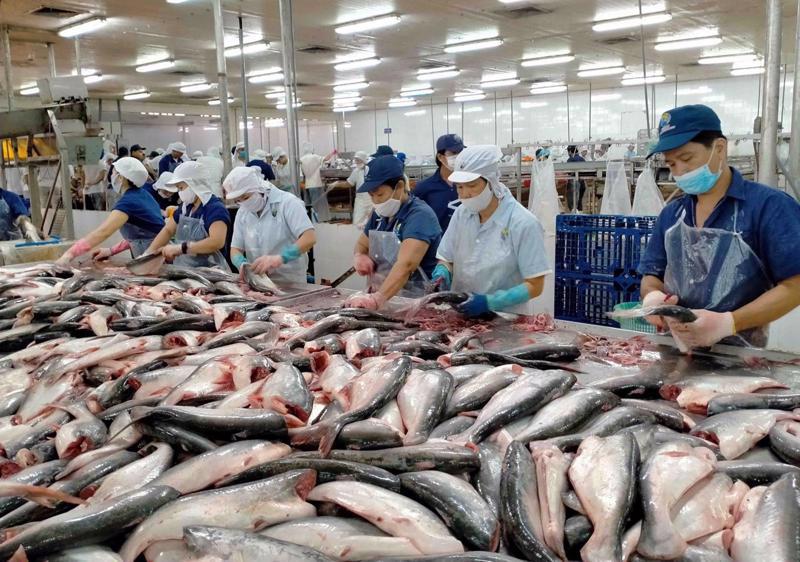The Vietnam Association of Seafood Exporters and Producers (VASEP) cited data from the International Trade Center (ITC) as showing that white fish export turnover from Vietnam to the US in the first half of 2024 reaching $184 million, accounting for 21% of the total, according to a report released by the Vietnam News Agency on September 1.
As a result, Vietnam was the second largest supplier of white fish (mainly tra fish or pangasius) to the US in the period.
Latest data from VASEP also shows Vietnam’s pangasius export turnover to the US in July 2024 reached $31 million, up 69% year-on-year. The figure brought the total value in the first seven months of the year to $190 million, up 20% over the same period last year.
The US is currently the second largest export market for pangasius of Vietnam, behind China and Hong Kong (China). Vietnamese pangasius products exported to the US include frozen fillets, value-added products from pangasius, dried pangasius and other frozen products.
According to VASEP, pangasius exports from Vietnam to the US recovered since the beginning of this year, because the inventory in this market in 2023 has decreased significantly. In addition, preparations for festivals and year-end holidays have also increased consumer demand from the US market. It is forecast that pangasius export orders to the US will increase in the last months of the year.
According to a report from the VASEP, in the first seven months of 2024, Vietnam's pangasius export turnover reached more than $1.1 billion , up 9% over the same period last year. China and Hong Kong (China) continued to be the largest export markets with $313 million, but down 4% year-on-year. The Comprehensive and Progressive Agreement for Trans-Pacific Partnership (CPTPP)’s market was the third largest pangasius export market with $155 million, up 15% year-on-year, followed by the EU with $99 million, down 2% year-on-year.









 Google translate
Google translate